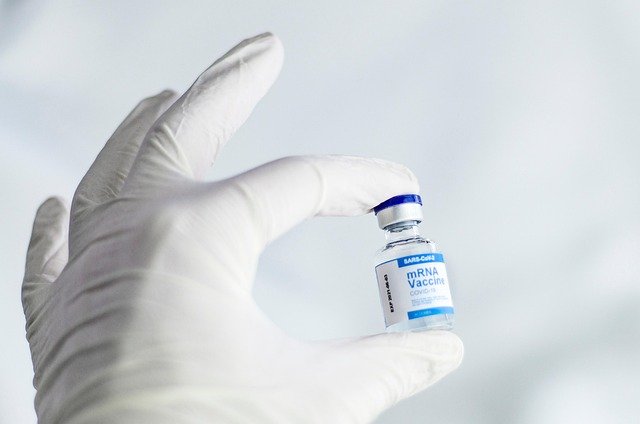Understanding IVF: Treatment Options, Process, and Cost Considerations
In vitro fertilization (IVF) represents a significant advancement in fertility treatment, offering hope to many couples struggling with conception. This comprehensive guide explores the IVF process, treatment options, success rates, and important cost considerations to help you make informed decisions about your fertility journey.

IVF treatment has transformed the landscape of fertility medicine, providing solutions for various causes of infertility. While the emotional journey can be challenging, understanding the medical process, available options, and financial aspects can help couples prepare for this important decision. This article examines the essential aspects of IVF treatment, including the procedure itself, what to expect during treatment, and how to navigate the associated costs.
What Is IVF Treatment and How Does It Work?
In vitro fertilization (IVF) is a complex series of procedures used to help with fertility or prevent genetic problems and assist with conception. During IVF, mature eggs are collected from ovaries and fertilized by sperm in a lab. The fertilized egg (embryo) is then transferred to the uterus. One full cycle of IVF takes about three weeks, though sometimes these steps are split into different parts and the process can take longer.
IVF is the most effective form of assisted reproductive technology. The procedure can be done using your own eggs and your partner’s sperm, or eggs, sperm, or embryos from a known or anonymous donor. In some cases, a gestational carrier — a woman who has an embryo implanted in her uterus — might be used.
The IVF process typically involves several key steps: 1. Ovarian stimulation using fertility medications 2. Egg retrieval through a minor surgical procedure 3. Sperm collection from the partner or donor 4. Fertilization in the laboratory 5. Embryo development monitoring 6. Embryo transfer to the uterus 7. Pregnancy testing approximately two weeks later
Who Is a Good Candidate for IVF Treatment?
IVF may be recommended for individuals or couples experiencing:
- Fallopian tube damage or blockage
- Ovulation disorders or premature ovarian failure
- Endometriosis
- Uterine fibroids
- Previous tubal sterilization or removal
- Impaired sperm production or function
- Unexplained infertility
- Genetic disorders that could be passed to children
- Fertility preservation for cancer or other health conditions
Age is a significant factor in IVF success rates, with women under 35 typically having higher success rates. However, advancements in IVF technology have improved outcomes for women of various age groups. A thorough evaluation by a reproductive endocrinologist can help determine if IVF is the right option based on your specific fertility challenges.
What to Expect During the IVF Process
The IVF journey typically begins with a series of fertility tests for both partners to identify the cause of infertility and determine the best treatment approach. Once IVF is recommended, the process follows these stages:
Preparation Phase: This may include pretreatment medications to regulate your cycle and prepare your body for the hormonal changes ahead.
Ovarian Stimulation: Daily hormone injections stimulate the ovaries to produce multiple eggs instead of the single egg that naturally develops each month. Regular monitoring through blood tests and ultrasounds ensures proper response.
Egg Retrieval: Once the eggs reach maturity, they’re retrieved through a minor surgical procedure under sedation. The doctor uses ultrasound guidance to insert a thin needle through the vaginal wall to remove the eggs from the follicles.
Fertilization: In the laboratory, eggs are combined with sperm for fertilization. In cases of male factor infertility, intracytoplasmic sperm injection (ICSI) might be used, where a single sperm is directly injected into an egg.
Embryo Development: Fertilized eggs develop into embryos over 3-5 days. The embryologist monitors quality and development during this time.
Embryo Transfer: The highest quality embryo(s) are transferred into the uterus using a thin catheter. This procedure is typically painless and doesn’t require anesthesia.
Post-Transfer Phase: Progesterone supplements support the uterine lining and early pregnancy. A pregnancy test is performed about two weeks after the transfer.
Success Rates and Factors Affecting IVF Outcomes
IVF success rates vary widely based on numerous factors:
- Age: Women under 35 typically have success rates of 40-50% per cycle, while women over 40 may have success rates of 15% or lower.
- Cause of infertility: Some conditions respond better to IVF than others.
- Reproductive history: Previous pregnancies or successful IVF cycles may indicate better chances.
- Embryo quality: Higher-quality embryos have better implantation rates.
- Clinic experience and laboratory quality: Success rates can vary between clinics.
- Lifestyle factors: Smoking, excessive alcohol consumption, obesity, and other lifestyle factors can negatively impact success.
Many patients require multiple IVF cycles to achieve pregnancy. Preimplantation genetic testing (PGT) can improve success rates by identifying embryos with chromosomal abnormalities before transfer.
Understanding IVF Costs and Financial Considerations
IVF treatment represents a significant financial investment for most couples. The cost varies widely depending on location, clinic, specific protocols required, and whether additional procedures are needed.
In the United States, the average cost of a single IVF cycle ranges from $12,000 to $17,000, not including medications, which can add $3,000 to $5,000 per cycle. Additional procedures like ICSI, PGT, or frozen embryo transfers incur extra costs.
Below is a breakdown of typical IVF costs in different regions:
| Region/Country | Basic IVF Cost Range | Additional Procedures | Medication Costs |
|---|---|---|---|
| United States | $12,000-$17,000 | ICSI: $1,000-$2,500 PGT: $3,000-$5,000 |
$3,000-$5,000 |
| Canada | $10,000-$15,000 CAD | ICSI: $1,000-$2,000 CAD | $2,500-$7,000 CAD |
| United Kingdom | £3,000-£5,000 (private) | ICSI: £800-£1,500 | £500-£1,500 |
| Australia | $9,000-$14,000 AUD | ICSI: $500-$1,500 AUD | $2,000-$4,000 AUD |
| Europe | €4,000-€7,000 | ICSI: €500-€1,500 | €1,000-€3,000 |
Prices, rates, or cost estimates mentioned in this article are based on the latest available information but may change over time. Independent research is advised before making financial decisions.
Many insurance plans in the United States don’t cover IVF or offer limited coverage. Some states have fertility insurance mandates requiring certain employers to provide fertility treatment coverage. International options, sometimes called “fertility tourism,” can offer significant savings but come with additional logistical challenges.
Financial options to consider include: - Clinic payment plans or package deals for multiple cycles - Fertility grants and scholarships - Medical loans specifically for fertility treatments - Shared risk programs (refund if treatment doesn’t result in pregnancy) - Medication discount programs
Selecting the Right IVF Clinic for Your Needs
Choosing the right fertility clinic is crucial to your IVF journey. Consider these factors when evaluating clinics:
Success rates: Review the clinic’s published success rates, particularly for patients in your age group and with your specific fertility diagnosis. The Society for Assisted Reproductive Technology (SART) and the CDC publish success rates for member clinics.
Experience and expertise: Look for clinics with experienced reproductive endocrinologists, especially those with expertise in your particular fertility issues.
Laboratory quality: The embryology lab plays a crucial role in IVF success. Ask about the lab’s certification and quality control measures.
Available services: Ensure the clinic offers the specific treatments you might need, such as ICSI, preimplantation genetic testing, or donor services.
Patient support: Consider what emotional support resources are available, including counseling services and support groups.
Accessibility and communication: Evaluate how responsive the clinic is to questions and how clearly they explain procedures and options.
Cost transparency: The clinic should provide clear information about costs and any financial programs available.
Many patients find it valuable to schedule consultations with multiple clinics before making a decision. These consultations allow you to meet the medical team, tour the facility, and get a sense of the clinic’s approach to care.
IVF treatment offers hope to many couples facing fertility challenges, but it requires careful consideration of medical, emotional, and financial factors. By understanding the process, costs, and what to expect, you can approach this journey with greater confidence and preparedness. Working closely with experienced fertility specialists can help you navigate the complexities of IVF and find the path that’s right for your family-building goals.
This article is for informational purposes only and should not be considered medical advice. Please consult a qualified healthcare professional for personalized guidance and treatment.




